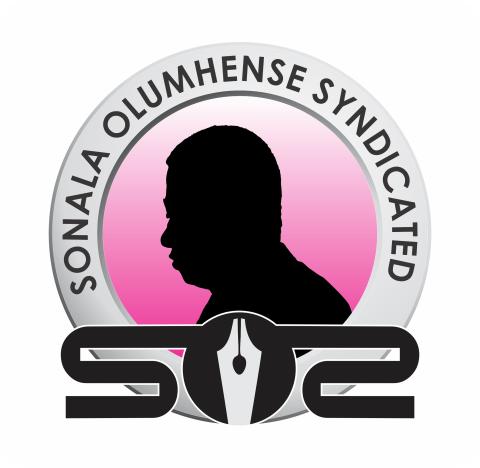
President Muhammed Buhari has demanded an explanation from the Ministry of Finance concerning foreign loans obtained for rail projects but which were diverted to other purposes.

In response, former Finance Minister and Coordinating Minister for the Economy, Ngozi Okonjo-Iweala has denied the allegation that a substantial part of “$1.1billion loan” for the rail line linking Lagos and Kano was so diverted.
I believe Dr. Okonjo-Iweala to be right, in this instance, in terms of whether it was possible to divert such funds. The loans involved projects, not cash. I enter a caveat, though: Nigerians are very creative people.
But it is a complicated argument over a complicated subject. There was an outbreak of Chinese loans during the Jonathan Years, and Okonjo-Iweala ought to be forgiven if she forgot one, or more of them.
On July 18, 2012, the federal cabinet did approve a $1bn Chinese loan for the modernisation of the Lagos-Kano rail line. Minister of Transport Idris Umar explained that the first phase would involve the Lagos-Ibadan standard gauge double track by the Chinese firm, China Civil Engineering Construction Corporation Ltd (CCECC). The Kano-Lagos rail story however predated the Goodluck Jonathan administration, and forms part of Nigeria’s jungle of unfinished and looted projects.
How can we help Buhari to help us? He must look at broader pictures and identify trends. To that end, I urge him to call on the Ministry of Finance and the Debt Management Office to provide him with their China dossiers, of which Nigeria rail projects form one part. There are many incomplete chapters of an entirely bizarre story, such as:
In May 2010, the Nigerian National Petroleum Corporation (NNPC) announced it had signed a $23 billion MOU with China State Construction Engineering Corporation (CSCEC), to construct three oil refineries and a petrochemical plant.
It was also in that July 2012 that Chinese President Hu Jintao, speaking at the Fifth Ministerial Conference of the Forum on China-Africa Cooperation (FOCAC) in Beijing, announced a $20billion credit line for Africa to help build infrastructure, agriculture, manufacturing and small businesses.
Nigeria wasted no time: The following month, Okonjo-Iweala led a delegation to Beijing to negotiate a $3 billion loan she said was to “complete some people-oriented projects.”
It was also during that trip that she acknowledged what had become the embarrassing practice of a rash of Nigerian government agencies scrambling over each other to obtain “cheap” Chinese loans.
“We have noticed a phenomenon where a lot of Chinese companies come to different ministries and agencies with particular projects they are interested in, and when the MDAs say yes, they sometimes go and help negotiate the credit,” she said.
The Ministry of Aviation would appear to have been one of those early players, because in September of that year, Minister Stella Oduah was already talking about Chinese contractors commencing work on five international airport terminals. The loan for them, she explained, had a 22-year tenure, a moratorium of five years and an interest rate of two per cent per annum.
“It is almost free money,” she said, adding that the contractors would mobilize to the sites within 90 days.
Ms. Oduah said the government had on September 5 approved N106 billion for the terminals as well as for six other airports—for perishable cargoes—to also be built in Lagos, Abuja, Port Harcourt, Enugu, Kano and Asaba, bringing the total number of airports to 11. She specifically stressed that the new international terminal projects were different from the remodeling and reconstruction of 11 other airports in the country.
President Goodluck Jonathan traveled to Beijing in July 2013 to sign off on that $3 billion loan.
The projects at which the loan was aimed included the four new airport terminals, $500 million; the Abuja light rail project, $500 million; agriculture, $500 million; completion of Bauchi Independent Power project, $171 million; completion of the Galaxy backbone project, $100 million; and Niger Delta infrastructure, $1.4 billion. It is this loan I think she said did not include the Kano-Lagos rail.
On July 18, Bloomberg News reported that much more had taken place during the presidential visit. “While [Minister for Trade and Investment Olusegun] Aganga and Nigerian President Goodluck Jonathan were in Beijing, they signed an agreement with Power Construction Corp. of China that may lead within a year to a $20 billion project for 20,000 megawatts of electricity capacity in Nigeria, with the Chinese company recouping the investment by selling power to the grid.”
Two years later, progress or completion reports on each of these projects ought to be made available to Nigerians. The airport terminals, for instance, took on a life of their own at a point. In February 2014, Minister Oduah bragged that the jobs would be completed by the end of the year.
By June, Oduah had lost her job as Minister. That month, the House of Representatives denounced the deal for the five airport terminal buildings as fraudulent, and detrimental to the Nigerian economy.
Nkiru Oyejeocha, the Chairperson of the House Committee on Aviation, expressed regret that while the government had supplied the counterpart funding of $100 million for the $500 million project, Nigerian professional workers had been completely shut out of it. The committee also said that about $10 million of the $100 million paid to CCECC had been “misappropriated.”
There are many other China-related projects of interest:
In December 2012, for instance, Nigeria began negotiations with China’s Import-Export Bank for a $1.5 billion loan to boost the processing of rice and cassava, Agriculture Minister Akinwunmi Adesina said.
In June 2013 the Managing Director of Federal Mortgage Bank of Nigeria (FMBN), Mr. Gimba Yau Kumo, announced the bank was negotiating with China a loan of N936 billion. One year later, at the World Economic Forum Africa in Abuja, Kumo announced that the Chinese had offered to lend FMBN $4 billion.
In November 2013, China Railway Construction Corp. Ltd. (CRCC) announced in Hong Kong a contract with Nigeria's Ministry of Niger Delta Affairs to build a $1.07 billion road in the area within five years.
Exactly one year after that, in November 2014, Nigeria signed another massive contract, worth $11.97 billion, also with CRCC, to build a 1,402 kilometer Lagos-Calabar coastline railway.
In June 2015, during his meeting in Abuja with officials of the Chinese Construction Company working on the Mambilla Power Project, President Buhari expressed the desire to have such projects completed expeditiously. The $3.2bn., 3,050MW project may be reviewed up to $6b, officials of the Ministry of Power have said.
The related $1.3bn., 700-MW Zungeru Hydroelectric project, on which Nigeria has since 2012 partnered with China’s CNEEC-Sinohydro, has the same profile.
“Very soon, we will get together and redefine the project agreements for faster results,’’ Buhari said.
If he is to get anywhere—on this and on any other file—not only must he start early and hurry hard, he must do the country the favour of obtaining a full understanding. Nobody seems to know exactly what have we given to China, or received in exchange.
As Central Bank Governor, Lamido Sanusi expressed open objection to the way African countries had opened up to China, identifying in a commentary in The Financial Times “a new form of imperialism."
China, he observed, "takes from us primary goods and sells us manufactured ones. This was also the essence of colonialism."
That was not something that Nigeria’s Okonjo-Iweala understood. "I'm not of the school that says 'look this is colonialism',” said the Minister who had helped negotiate the country’s debt relief with the Paris Club just six years earlier. “We should be open to whoever wants to invest and help us finance our needs.”
Perhaps. But what have we got from China? And where is it we?
• [email protected]
• Twitter: @SonalaOlumhense